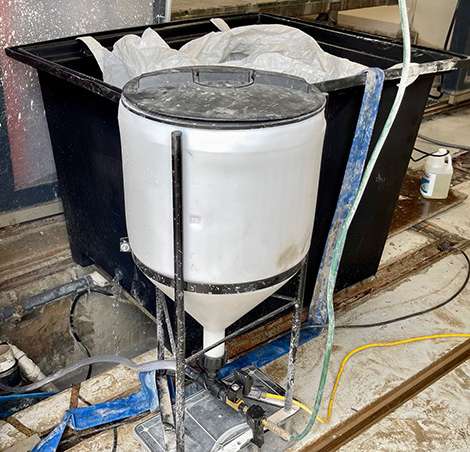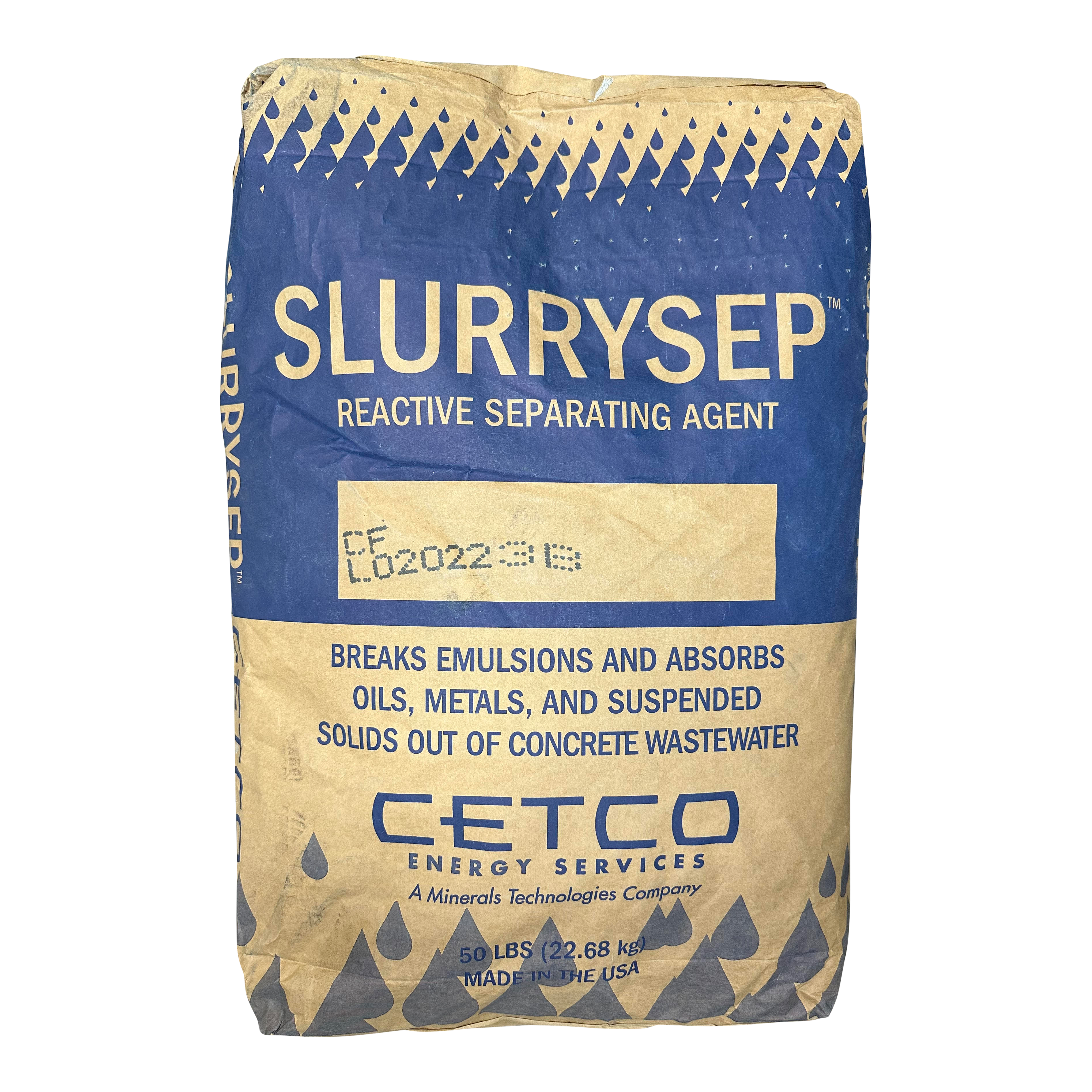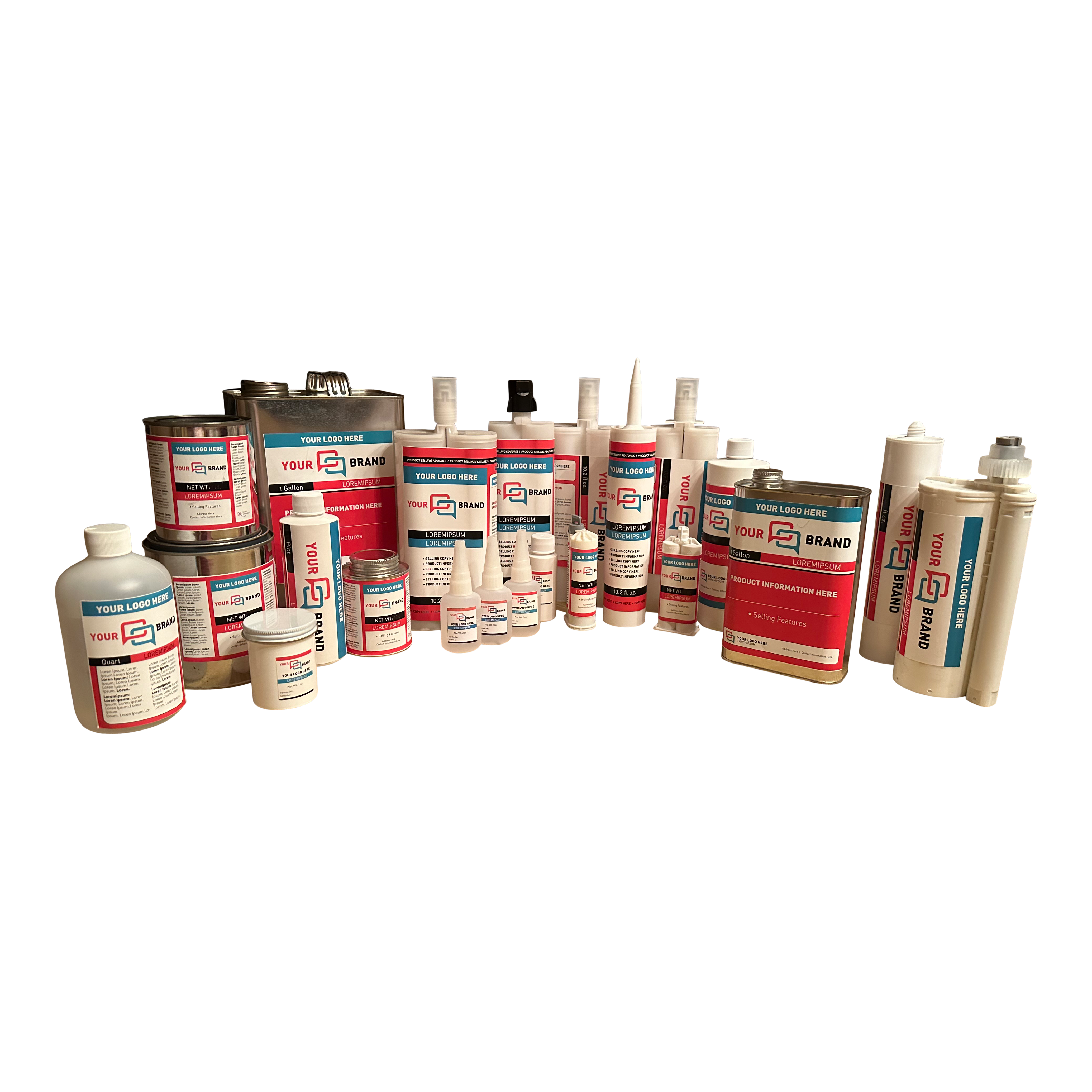
How to Improve Air Quality in Stone Fabrication Shops: The Role Shop Water Plays

As technology and processes continue to improve, stone fabrication shops continue to become safer. However, air quality is still a significant problem that needs to be addressed. In this blog, we explore what causes poor air quality and how improving shop water quality can be a cost-effective solution.
Poor Air Quality Still Plagues Stone Fabrication Shops
Working in a stone fabrication shop is a dangerous job—there’s no avoiding that fact. Although there will always be job hazards, many shops have worked to improve their facilities and processes to ensure that employees are as safe as possible.
Thanks to that work, many stone fabrication shops are much safer than they were decades ago. Unfortunately, one problem still plagues the industry – poor air quality. Left unaddressed, these air quality problems can lead to many health issues for stone shop employees, including silicosis, lung cancer and other respiratory diseases.
Because of this persistent problem, OSHA has been cracking down on air quality standards and specifically targeting stone fabrication shops. So, not only is it essential to improve your air quality for the sake of your worker’s health, but it’s also essential for the sake of your business. It’s cheaper and easier to take preventive measures, rather than facing fines and costly corrective actions from OSHA.
It’s clear that stone fabrication shops need to improve their air quality, but to do that, you need to know what causes poor air quality in stone fabrication shops.
What Causes Poor Air Quality in Fabrication Shops?
1. Cutting Stone Slabs Creates Silica Dust

The word “cutting” is misleading when talking about stone fabrication. The cutting process when using a diamond blade on stone is more of an abrading process. Stone-cutting blades aren’t sharp like traditional saw blades. Instead, they cut by abrasion as the diamonds make contact with the surface and wear away material. This process produces a lot of very fine silica dust. At a molecular level, those silica particles have a barbed structure. Those barbs can cause a lot of damage to lung tissue when breathed in, leading to diseases like silicosis.
2. The Growing Popularity of Engineered Quartz
Engineered stone or quartz countertops have been growing in popularity for quite a while. Many stone fabrication shops now report that engineered quartz makes up most of their business. While the popularity of these new materials has certainly added business opportunities for many shops, that opportunity comes with a cost. Unlike natural stone, engineered quartz is made up of up to 90% silica. That means more silica is being released into the air than ever before.
3. Awareness Gap
Many fabricators are not fully aware of the dangers of silicosis and best practices to avoid or reduce exposure. There is not a prevalent culture of safety that is universal through the industry. Some workers are resistant to wearing proper PPE or like to cut dry. Some fabricators believe that wet cutting is a silver bullet that eliminates the risk of airborne exposure entirely (hint: it doesn’t). Facial hair and poor fitting equipment can reduce the effectiveness of masks which can pose a danger that goes unnoticed.
How to Improve Shop Air Quality

Between heavy machinery, cutting equipment and large stone slabs, it’s impossible to make fabrication shops completely safe work environments. However, there are measures shop owners and managers should take to ensure their workers’ health and safety, especially regarding air quality.
Here’s a simple three-pronged approach to improve air quality in your stone fabrication shop.
#1. Ventilate Your Shop & Use PPE
First, ensure your shop is adequately ventilated, and your employees use their personal protective equipment (PPE). Ventilation allows for air circulation, which helps eliminate any harmful particulate matter faster. PPE like N-95 masks and safety goggles filter out harmful silica dust
#2. Eliminate All Dry Processes and Cut Wet
The first step to improving air quality in your stone fabrication shop is eliminating all dry processes. Cutting wet is the easiest way to trap silica and dust particles before they are expelled into the air.
#3. Add a Flocculant and Coagulant to Your Shop Water
Stone shops that cut wet may feel a false sense of security. There’s a misconception that cutting wet and ventilating your shop is enough to maintain acceptable air quality in your shop. Cutting wet does eliminate a lot of dust from the air, but that dust doesn’t just disappear. If you have gray water sitting on surfaces, when that water evaporates, you’re left with the same problem: Harmful silica dust is released into the air.
A flocculant and coagulant additive can be a simple, cost-effective solution that can improve the quality of your shop water, especially if you filter and recycle your water. This type of additive works a lot like cat litter. It clumps dust and other impurities, separating larger impurities from the water before hitting the filter. By removing silica dust from dirty water, you prevent it from being released back into the air when the water evaporates.
-
 Xcelerate Chemicals Slurry Sep CF Flocculant & Coagulant – 50LB bagsOur Price Starting at $197.50
Xcelerate Chemicals Slurry Sep CF Flocculant & Coagulant – 50LB bagsOur Price Starting at $197.50
The Additional Benefits of Shop Water Improvements
Improving your shop’s water quality has many other benefits that can help your shop run more efficiently and effectively. You’ll see improvements in the following areas when you cut with cleaner water.
- Equipment Maintenance: Having clear, clean water going through your equipment reduces wear and tear on your machines resulting in longer life, reduced maintenance costs and higher ROI.
- Reduce Water Bill: Increasing the efficiency of your water recycling system decreases your dependence on city water and can reduce your water bill and dependence on fresh water.
- Labor and Consumables: Many shops sink a lot of man hours into changing filters, cleaning pits, and other maintenance. There is also the consumable cost of filters, pearlite, and other supplies. Having cleaner water hitting your equipment can reduce your maintenance and consumable costs associated with your recycling system.
Conclusion: Better Shop Water is a Win-Win
Every stone fabrication shop should be cutting wet. If you are already cutting wet, adding a flocculant and coagulant additive to your shop water system can be a cost-effective way to further improve your air quality because dirty water = dirty air!
Taking the extra step to ensure the safety of your employees is not only the right thing to do, but it’s also a pragmatic business decision. Many shops are cutting corners and endangering their employees. Customers don’t want to buy from those types of shops. Doing everything you can to improve your shop’s safety is another way to stand out from your competitors and mitigate business risk.


